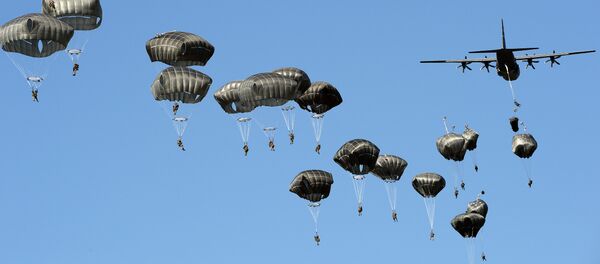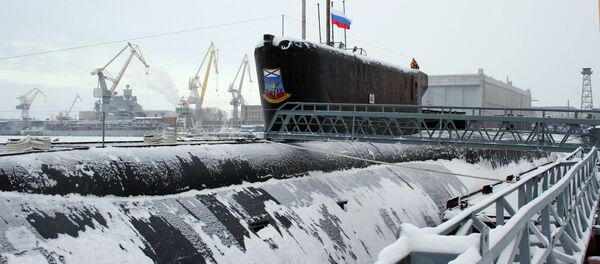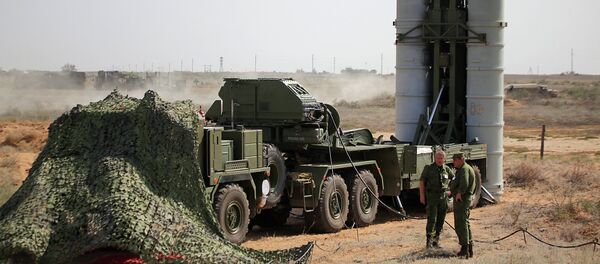That outcome of breaking Moscow financially would, in turn, lead eventually to Russia’s subjugation by the US. Russia and its rich natural resources would henceforth be just just another domain ruled over by American capital. And geopolitically, Washington would have a free hand to kick the rest of the world around in the absence of any counterweight from a strong Russia, as recent events in Syria all too well illustrate.
The precedent for this war-by-finance scenario can be best seen during the US presidency of Ronald Reagan in the 1980s. Arguably all through the Cold War decades, since the Second World War, the US and its NATO military alliance always acted aggressively towards the then Soviet Union. The latter was continually obliged to divert inordinate economic resources to maintain some kind of defensive parity.
During the Reagan presidency, the US embarked on a surge in military spending which inevitably induced the Soviet Union to respond likewise. Both countries incurred massive financial problems owing to the accelerated arms race. In the case of the Soviet Union, the unsustainable arms expenditures led to the collapse of its economy, and consequently its political system dissolved in 1991.
In other words, the US appeared to win the Cold War, not because of superiority from its political, economic or military systems over the Soviet Union. On the contrary, it was only because the US could print money and pile up debt with seeming abandon that gave it a decisive edge; whereas the Soviet system had no such privilege to offload its financial problems on to the rest of the world.
Russian President Vladimir Putin is therefore prudent when he said this week that he would not allow his country to once again become embroiled in any arms race with the US. One suspects that Putin and his advisors have studied history well and understand that such an arms race – if precipitated – would lead to much more grievous economic and political problems for Moscow than it would for Washington; simply because of the peculiarity of US dollar being unfairly privileged by the global financial system.
Nevertheless, one also suspects that an arms race with Russia is exactly what powerful elements within the US ruling system want.
American capitalism as a supposedly “free market”, “private enterprise” system is a myth. In reality, it is, by contrast, a centrally planned, subsidized support system for elite profit-making. Massive US military spending year-on-year is crucial to the support system for this kind of economic parasitism. Logically then an arms race induced against Russia would be a welcome boon for the military-industrial complex of corporate manufacturers, Wall Street bankers and mega-rich shareholders.
Trump seems to be aware of this, given his recent admonitions to Lockheed Martin over its exorbitant, publicly subsidized program to build the F-35 fighter jet. Whether Trump is willing to overcome the parasitical nature of the US military-industrial system is another question. It’s doubtful. For what is required is a systematic change brought about by a mass political movement, which Trump, the capitalist billionaire magnate, certainly does not represent.
Another compelling reason for why the US desires an arms race with Russia is that statecraft planners and ideologues in Washington know well that such an escalation would lead to a repetition of the old Cold War strategy of breaking Moscow through a futile financial hole-digging competition.
Russia, as virtually every other nation is, is limited by how much of its economy can sustain military spending. Not so the Americans. Washington can pile up debt with impunity for as long as the global financial system relies on the dollar as the primary reserve currency.
Any sane person can see that the objective situation is one of NATO aggression and intimidation towards Russia, in complete reversal of what the Western governments and their servile mass media allege.
This would also explain why the US unilaterally walked away from the anti-ballistic missile (ABM) treaty in 2002. Washington needs to foster instability and insecurity because its otherwise bankrupt economy is only propped up by such instability and war proneness.
The real purpose is not to instigate World War III with Russia, but instead to coerce Moscow into another disastrous arms race.
It is essential that Russia continually strengthens its defense capability. That means upgrading existing systems. The key word here is “strengthening”. Putin was not referring to “expansion”. He was specifically talking about optimizing military capability by being economically and technically efficient.
Putin proudly referred to Russia being capable of defending itself against “any aggressor”.
However, at all costs, Russia must avoid an arms race that would shatter its economy and eventually its national sovereignty. That is exactly what American adversaries want.
The views expressed in this article are solely those of the author and do not necessarily reflect the official position of Sputnik.









